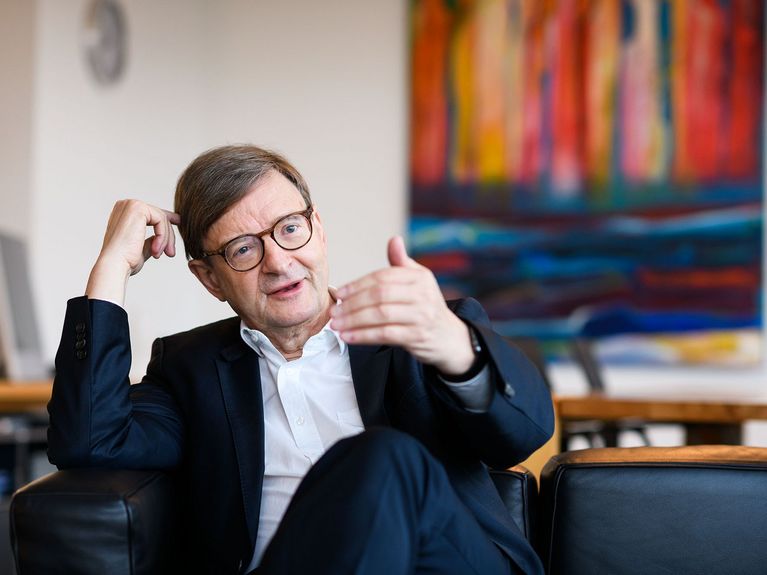Point of View
“Europe concerns all of us”

Picture: Phil Dera
The elections to the European Parliament are about to take place; in Germany, elections will be held on June 9, 2024. A living democracy is a crucial cornerstone for fundamental freedoms, including that of research. A viewpoint by Otmar D. Wiestler.
The major issues of our time for science, the economy and society do not stop at borders – and it is of the utmost importance to tackle them together and at European level. Now more than ever.
In competition with other regions of the world and in the face of such immense challenges as climate change or the energy transition, no EU member state can succeed alone. In 21st century Europe, we should work together to advance the European project and not fall into the trap of prioritizing national interests.
Research can significantly contribute to the European project. Dedicated research collaborations across borders enable Europe to achieve its ambitious goals in areas such as health, energy, transport, environment, climate or digital transformation. There are enormous opportunities here.
In order to seize these opportunities, we need a democratic, effective and future-oriented European Parliament that is willing and able to act – and the same naturally applies to the European Commission and the Council, in which the Member States are represented.
A large part of our legislation originates at European level. Thus, the European Parliament negotiates and co-decides on numerous research-related topics – including, for example, the European Health Data Space, new genomic techniques in plant breeding and the handling of Artificial Intelligence.
The European Parliament has been an important advocate for research in recent years repeatedly preventing the budget of Horizon Europe, the EU’s framework program for research and innovation, from being cut.
Horizon Europe promotes the European and international research cooperation that is so crucially important for finding answers to our complex questions. Among other things, the program brings together project partners with different expertise and methods from all over Europe and beyond. Only in this exchange can social and technological development be fostered.
Should extreme right-wing voices become louder in the European Parliament, this could also have a negative impact on research cooperation. And if the EU were to be less open, the attractiveness of Europe as a hub for research and innovation threatens to decline and deter international scientists. We cannot afford that.
Elections are democracy in action. They are also an opportunity to support and protect fundamental values such as academic freedom. The European Research Area, which is a kind of EU internal market for research, provides the essential framework for the excellent cooperation and open exchange of science outlined above. The ideas for shaping it are as diverse as its players. Often the details are disputed. In my view, the overall picture is clear:
Research and development at the highest international level are a decisive factor in shaping a sustainable future for Europe. This requires, not least, a European Parliament whose members recognize and acknowledge the value of research, actively contribute to the development of the research portfolio and base their decisions on science-based facts. Europe concerns all of us. In the elections to the European Parliament, we must set the right course.
Readers comments